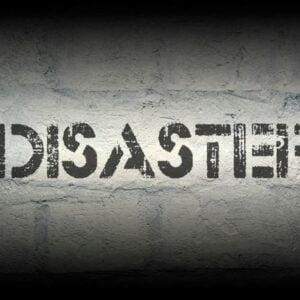The World Bank’s new Country Climate and Development Report indicates that while Thailand faces significant climate risks, strategic and timely development investments can unlock new economic growth opportunities. Focused on adapting to extreme weather, reducing emissions, and promoting green exports, these investments are crucial for Thailand to realize its aspiration of becoming an inclusive and sustainable high-income society.
Failure to implement adequate adaptation measures against climate impacts such as floods, heat stress, water shortages, and coastal erosion could severely impact Thailand’s economy, potentially reducing GDP by 7–14 percent from baseline levels by 2050. Conversely, emissions reduction efforts will deliver multiple economic benefits, including lower costs for power and transport, greater energy security, improved air quality, and enhanced overall economic competitiveness. Furthermore, the report suggests that carbon pricing, supported by targeted investments, can effectively help Thailand achieve its carbon neutrality target by 2050 and its net zero goal by 2065.
Thailand possesses a substantial capacity to capitalize on the increasing global demand for green technology, already demonstrating leadership in eco-friendly air conditioner exports, contributing about 4 percent to global solar PV exports, and establishing itself as an electric vehicle (EV) production hub. Despite these strengths, green products currently account for less than 10 percent of Thailand’s total exports. Policy actions aimed at easing market-entry barriers, reducing distortionary tariffs and subsidies, strengthening workforce skills, and fostering domestic technological innovation could increase green exports by 2–3 percent of GDP by 2030.
Melinda Good, World Bank Division Director for Thailand and Myanmar, emphasized that Thailand’s long-term competitiveness is contingent on reducing the emission intensity of its economy and shifting production toward greener goods and services. This strategic transition is projected to create new industries, generate high-quality jobs, and ensure Thailand remains attractive to international investors in a global low-carbon environment. The World Bank is supporting this agenda through its “Building Thailand’s Future Today” flagship initiative.
The country is highly vulnerable to physical climate threats, ranking among the ten most flood-prone nations globally, with the economically vital Chao Phraya basin, which accounts for 66 percent of GDP, being especially at risk. Climate change is expected to intensify water shortages in critical agricultural and industrial areas, including the Eastern Economic Corridor. Additionally, coastal erosion, already affecting 30 percent of the Thai coastline, could lead to annual tourism losses of US$1 billion by the mid-2040s, while widespread heat stress threatens to significantly reduce labor productivity across key economic sectors.
World Bank Senior Economist Kim Alan Edwards, the lead author of the report, asserted that investments in critical areas like flood mitigation, water security, coastal protection, climate-smart agriculture, and cooling infrastructure could boost Thailand’s annual GDP by 2–3 percent by 2040 and by 4–5 percent by 2050, compared to a business-as-usual trajectory, while simultaneously safeguarding citizens and reducing risks from extreme events. He also highlighted that scaling up social protection programs is vital for strengthening the resilience of the most vulnerable populations against climate shocks and ensuring better post-disaster support.
To successfully implement both its adaptation and emissions-reduction strategies, Thailand will require approximately US$219 billion in climate-related investments over the next 25 years, a figure equivalent to about 2.4 percent of cumulative GDP. Despite the scale of these financial requirements, the Country Climate and Development Report demonstrates that these needs can be realistically met through a combination of measures, including the implementation of carbon pricing, strategic public revenue reforms, and the effective mobilization of private capital.
The World Bank Group created the Country Climate and Development Reports (CCDRs) as an essential tool to seamlessly integrate climate action with national development strategies. CCDRs are designed to assist countries in identifying and prioritizing adaptation needs and greenhouse gas emission reductions in ways that are fully aligned with their broader development objectives. These reports offer crucial data, comprehensive research, cost assessments, and suggest priority actions intended to guide governments, the public, the private sector, and the World Bank Group’s engagements to facilitate a resilient and low-carbon transition and enhance funding for effective climate action.







